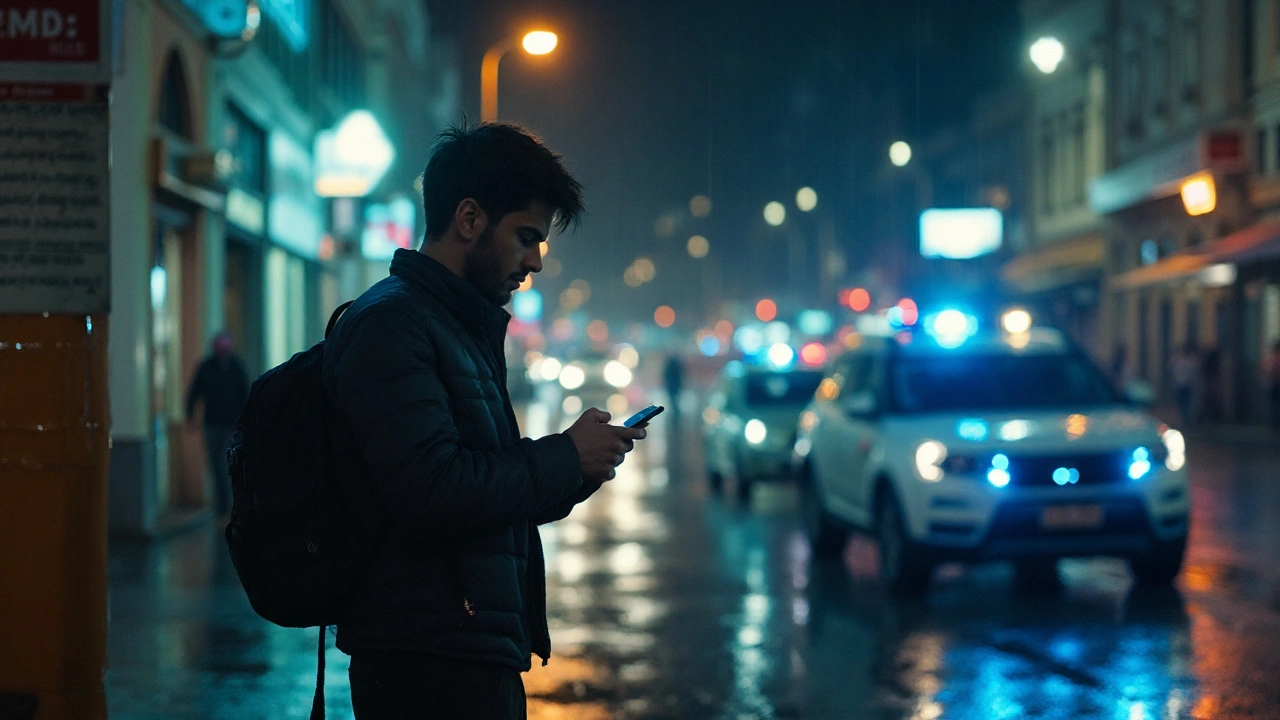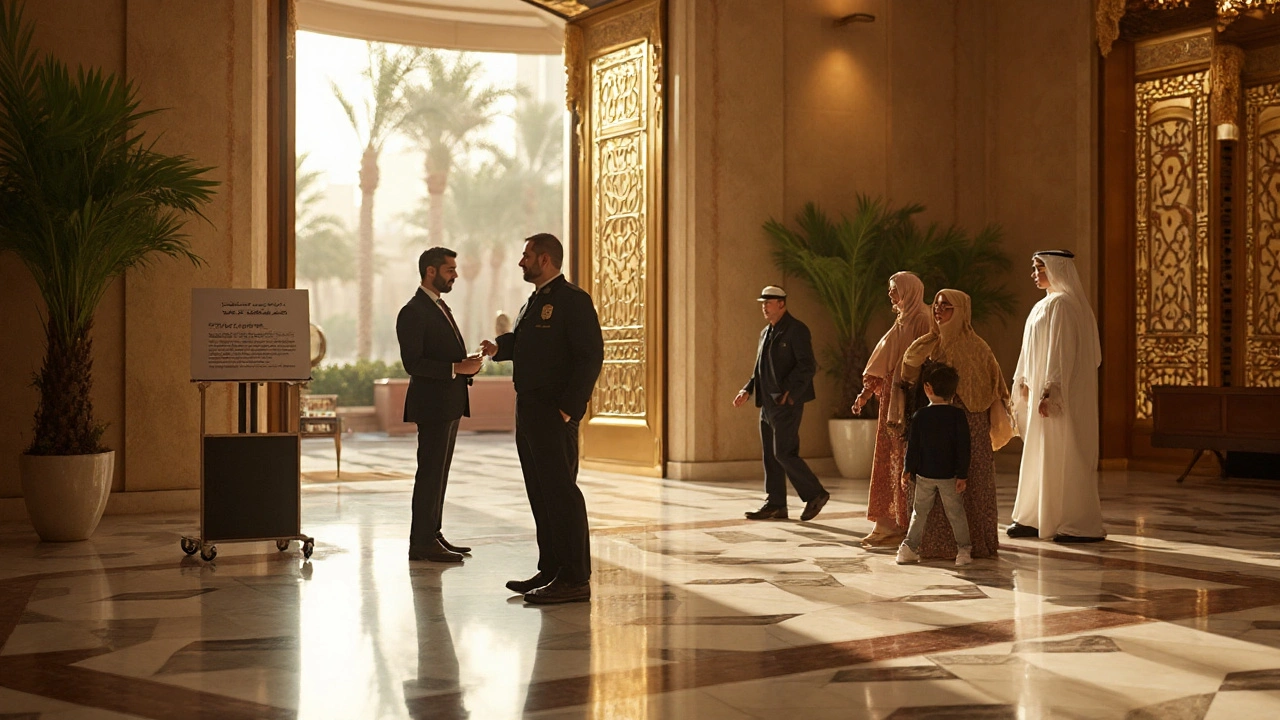Call Girls Dubai: Laws, Risks, Scams, and Safer Social Alternatives (2025 Guide)

If you typed call girls dubai, here’s the straight truth: sex work is illegal in the UAE, enforcement is active, and a huge chunk of what you’ll find online are scams or setups. People get fined, jailed, deported, or robbed because they don’t know the rules. This guide spells out what’s legal in 2025, what’s risky, how scams work, and safer ways to meet people without wrecking your trip. I write this from Auckland with my cat Luna asleep on the keyboard-and I want you heading home with good photos, not a police report.
- Sex work and solicitation remain illegal in the UAE. Penalties can include jail, fines, and deportation under Federal Decree‑Law No. 31 of 2021 (Penal Code).
- Online ads are often bait for blackmail, theft, or police stings. Never send ID, pay deposits, or share your location with strangers.
- Hotels enforce ID checks and guest rules. Unregistered visitors to rooms can trigger security calls or worse.
- There are safer, legal ways to socialize: licensed hotel bars and clubs, group events, and respectful dating-within local decency laws.
- If you’ve already engaged and feel exposed, stop, document everything, lock down your accounts, and speak with your hotel, your embassy/consulate, or local authorities.
What your search really means in Dubai (2025): laws, reality, enforcement
Dubai sells glitz, but it’s conservative on “vice” crimes. The law is clear: buying or selling sexual services is illegal. So is promoting it online, arranging it, or profiting from it. The UAE updated its Penal Code in 2021 (Federal Decree‑Law No. 31/2021) and its Cybercrime law the same year (Federal Decree‑Law No. 34/2021). Those updates tightened penalties for online promotion and immoral content. In plain words: messaging strangers about paid sex, sharing explicit offers, or posting escort ads can trigger serious trouble.
Enforcement is not theater. Security in Dubai’s tourist zones is visible and data‑driven. Hotels scan passports/IDs. Malls and towers have cameras. Messaging apps get monitored in serious cases. When authorities run stings, tourists get caught buying, not just sellers. Embassies keep issuing travel advisories warning about prostitution laws and sextortion targeting visitors.
Another reality check: most “independent escort” profiles in search results are not real people. They recycle stolen photos, push you to WhatsApp, ask for a “refundable” deposit to confirm a booking, then vanish-or worse, threaten exposure unless you pay again. Others coordinate “room meetups” that end in theft. Even if you dodge criminals, you still face legal risk. That’s a lose‑lose.
Hotel policies matter. Many properties only allow registered guests into rooms. Some require front‑desk check‑in for any visitor with ID, which deters rule‑breakers. If you try to sneak someone in, expect a call from security. If the situation escalates, police may get involved. No hotel wants its license questioned over guest misconduct.
Where people slip up: they think Dubai is “quietly tolerant” if you’re discreet. The city is more nuanced: nightlife is robust, but the red lines are enforced. You can have a fantastic time without crossing them.
| Activity (2025) | Status in UAE | Risk Level | Possible Consequences | Reference |
|---|---|---|---|---|
| Paying for sexual services | Illegal | High | Arrest, fines, jail, deportation | UAE Penal Code (FDL 31/2021) |
| Soliciting or advertising prostitution (incl. online) | Illegal | Very High | Arrest, fines, jail, deportation | UAE Cybercrime Law (FDL 34/2021) |
| Visiting licensed bars/clubs (21+) | Legal | Low-Medium | ID checks; obey decency/PDA rules | Dubai Economy & Tourism rules |
| Booking a standard massage at a licensed spa | Legal | Low | Fine if illegal services requested | DET licensing; Penal Code |
| Bringing an unregistered visitor to a hotel room | Restricted | Medium-High | Denied entry; possible police call, fines | Hotel policy; local law |
| Sharing explicit content online | Restricted/Illegal in many cases | Medium | Cybercrime charges for distribution/indecency | FDL 34/2021 |
| Public displays of affection beyond norms | Restricted | Low-Medium | Warning or fine | Public decency provisions |
How to protect yourself online and on the ground
This part is for anyone already messaging, or tempted to. The fastest way to stay safe is to disengage. If you won’t, at least avoid the traps below.
Spot the common scams:
- Deposits: “To confirm the booking, send a small deposit via crypto, gift cards, or a remittance app.” That money is gone the second you send it.
- Photo proof: They send “live” pics or voice notes. These are often scripted or stolen. Real‑time content doesn’t mean real person.
- Switch‑and‑bait: You agree to meet X person; a “manager” says she’s sick and offers a substitute-after another payment.
- Blackmail (sextortion): After you share a selfie, they threaten to message your contacts or job unless you pay.
- Hotel ambush: You’re asked to share room, passport, or itinerary. Then a group shows up, grabs valuables, and bolts. Your options are ugly because you were arranging something illegal.
Privacy and legal basics:
- Don’t share your ID, passport, hotel, or flight details with strangers. You can’t “unsend” that.
- Avoid sending intimate photos or videos. If they exist, they can be used. Under local law, distributing explicit content can be a crime.
- Assume messages are not private if a situation escalates. Screenshots travel.
- Use cashless payments only with reputable, legal businesses. Never wire money to individuals for “deposits.”
Hotel rules you can’t wish away:
- Expect ID checks and cameras in lobbies. Many hotels log visitors with their own ID. Unwilling to follow? They won’t let the person up.
- Security can call police if they suspect illegal activity. The hotel will side with the law, not your “but we were discreet” excuse.
If you’re already in a mess (read this twice):
- Stop responding to threats. Don’t pay. Blackmailers rarely stop after one payment.
- Collect evidence: usernames, numbers, screenshots, timestamps.
- Lock down: change passwords, enable two‑factor authentication, freeze cards if you sent details.
- Tell your hotel security. They’ve seen it before and can guide you.
- Report to local authorities and your embassy/consulate. Provide the evidence pack you collected.
Safety mindset that works anywhere, not just Dubai:
- If something feels rushed or secretive, it’s because it can’t survive daylight. Walk away.
- Never meet in private spaces with people you don’t know. Public, licensed venues only, and keep your drink in sight.
- If someone you just met asks for money, crypto, or gift cards, that’s not chemistry-it’s a con.

Legal, low‑risk alternatives for adult social life in Dubai
You can still have a great time. You just need options that fit local law and social norms.
Licensed bars and clubs inside hotels:
- Know the rule of thumb: Hotels with alcohol licenses have bars/clubs that attract travelers and expats. You’ll meet people there-no legal gray zone needed.
- Dress well, be respectful, and keep PDA mild. Staff are strict with troublemakers, not with polite guests.
- Carry ID. Bouncers will ask.
Daytime social scenes that actually work:
- Beach clubs and weekend brunches: Music, food, sunshine. It’s easier to chat without the late‑night drama.
- Group tours and classes: Desert outings, cooking workshops, art nights. Shared activities beat awkward small talk.
- Sports and wellness: Padel, yoga, running clubs. You came for the skyline; you might leave with new friends.
Dating apps, used respectfully:
- Plenty of travelers match on mainstream apps. Keep chats respectful, no explicit content, and meet only in public places.
- Avoid transactional talk. That’s where legal trouble begins.
- If someone asks for money, escorts you to an ATM, or suggests going to a private apartment immediately, that’s your cue to exit.
Spas and wellness, the legal way:
- Book only licensed spas. You’re there for a massage, not coded services. If staff use suggestive wording, decline and leave.
- Keep boundaries clear. Asking for sexual services exposes you to charges, not just awkwardness.
A few social and cultural cues that smooth everything:
- Alcohol is served in licensed venues, not everywhere. Don’t drink in public spaces or be intoxicated in the street.
- Keep PDA subtle. What’s fine in Ibiza can be too much in Dubai.
- Be kind to staff and security. They decide whether a situation escalates or diffuses.
Quick answers and next steps
Mini‑FAQ
- Are escorts legal in Dubai? No. Buying or selling sexual services is illegal. Advertising or arranging it online is illegal too.
- Is it safe to message numbers I find on search or social apps? It’s usually a trap-scammers, thieves, or stings. The safest choice is not engaging.
- Can I be deported? Yes. Vice‑related offenses can lead to deportation after fines or jail.
- Do hotels allow visitors to my room? Policies vary. Many require visitor ID check‑in. Some don’t allow non‑registered guests at all. Breaking rules may involve security or police.
- Is sexting allowed? Sharing explicit content can fall under cybercrime and indecency. Avoid it.
- Do stings happen? Yes. Enforcement is active in nightlife districts and online.
- Is cohabitation legal? The UAE relaxed rules for unmarried expats, but that doesn’t legalize sex work or public indecency.
Checklists you can actually use
Quick legal‑safety checklist before a night out:
- Stick to licensed venues (hotel bars, clubs, restaurants).
- Carry ID, dress well, and be respectful with staff/security.
- Keep PDA low‑key and skip explicit talk in public.
- Don’t take drinks from strangers; keep your glass in sight.
- If someone pushes for money or privacy fast, walk away.
Online red‑flag filter (30‑second scan):
- Asks for a deposit, crypto, or gift cards? Block.
- Refuses public meeting, insists on your room? Block.
- Pushes for your passport, hotel, or ID pics? Block.
- Promises “no risk” or “VIP police protection.” Block.
If you already paid or sent private images:
- Stop contact; don’t send another cent.
- Save everything (chats, numbers, receipts, screen recordings).
- Change passwords; enable 2FA everywhere.
- Tell your bank to watch for fraud; replace cards if needed.
- Speak with hotel security, local authorities, and your embassy/consulate.
Decision guide (simple and honest):
- Looking for company? Choose public, licensed venues and keep things social, not transactional.
- Want a massage? Book a licensed spa and keep it professional.
- Matched online? Meet in a busy, licensed place. No private apartments, no cash requests, no explicit content.
- Feeling pressured or uneasy? Your intuition just saved you-leave.
Why you can trust this advice
I cover travel, safety, and culture across the Gulf and wider region, and I hear the same pattern weekly: a quick online search leads to a WhatsApp pitch, a deposit request, and a threat. Laws in the UAE are not vague, and enforcers are not lenient with vice crimes. Primary sources you can check by name: UAE Federal Decree‑Law No. 31 of 2021 (Penal Code), UAE Federal Decree‑Law No. 34 of 2021 (Combatting Rumors and Cybercrimes), Dubai Department of Economy and Tourism licensing rules, and traveler advisories from major embassies. None of those read like “it’s fine if you’re discreet.”
Bottom line: you came for sun, skyline, food, desert, and a good story. You’ll get all of that without touching anything illegal. Keep your nights in the light, not in the gray.